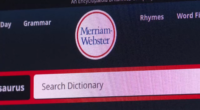Americans could soon be urged to drink no more than two bottles of beer or glasses of wine per week under new guidelines being drawn up by the federal government.
Two researchers who contributed to Canada’s controversial two-drink recommendation in 2023 have been quietly advising the US on its new alcohol policies set to be unveiled next year.
Dr Tim Naimi and Dr Kevin Shields are both listed as advisers on a scientific review panel that will inform the new 2026 US Dietary guidelines.
The panel will analyze scientific studies on the health effects of drinking alcohol and submit their findings to the Interagency Coordination Committee on the Prevention of Underage Drinking (ICCPUD).
Republican and Democrat members of Congress have raised concerns that the panel is not impartial.
Three other advisers on the scientific review panel have publicly stated there is no safe level of alcohol, despite many health experts saying the evidence is less certain.
Every five years, the US publishes recommendations on what to eat or drink which covers dozens of foods, including added sugar, fiber and alcohol.

Concerns are being raised that the United States may shift to recommending just two alcoholic beverages per week (stock image)
Last time it was updated in 2020 the guidelines recommended that American men should consume no more than two alcoholic drinks a day and women should consume no more than one alcoholic beverage per day.
For decades, studies suggested that there was some benefit to drinking moderate amounts of alcohol, which was thought to be linked to its destressing effects
But in recent years, research has swung the other way.
Many studies have since shown that consuming alcohol in any amount raises the risk of everything from cancer to heart disease, liver disease and high blood pressure.
In December 2022, Congress allocated $1.3million to the National Academies of Science, Engineering and Medicine (NASEM) to investigate the health effects of consuming alcohol.
Their report is set to be published next week and will be used to advise the new dietary guidelines.
Alongside this work, the ICCPUD has set up a separate subcommittee and scientific review panel to also investigate health effects from consuming alcohol.
The panel is carrying out scientific studies called meta-analyses, where researchers analyze results from already published papers on alcohol consumption and health effects, to assess the risks of consuming alcohol.
Their findings, and the ‘best available science’, will then be submitted to the subcommittee, which will use this research alongside other studies to compile its own set of guidelines and advice to submit for the new dietary guidelines.
Results from these studies are expected to be published around or just before Christmas Day and the New Year period.


Pictured above is Dr Tim Naimi, left, and Dr Kevin Shields, who were both on the Canadian report that suggested people should limit their alcohol consumption to two drinks a week
Both reports will be used to inform the 2026 to 2030 US Dietary guidelines, which are expected to be published by the end of next year.
The guidelines will eventually be signed off on by the US Department of Agriculture (USDA) and Department of Health and Human Services (HHS).
These will be headed up by Donald Trump-appointments which could include Robert F. Kennedy Junior as HHS chief.
Both Donald Trump — a lifelong teetotaler — and Robert F. Kennedy Junior — a former addict — do not drink alcohol.
Sources close to RFK Jnr. say they believe he’d back the new guidelines — but would want to see the evidence on which the recommendation is based.
DailyMail.com reported in August 2023 that US was looking at much stricter alcohol guidelines.
At the time, White House press secretary Karine Jean-Pierre stating that it was ‘absolutely false’.
The ICCPUD’s study on alcohol is overseen by Alicia Sparks, a project director who has ties to anti-alcohol campaigning — including the US Alcohol Policy Alliance, which aims to reduce alcohol consumption in the US.
Three other scientists who have previously spoken out against alcohol consumption have also been appointed to the panel: Dr Priscilla Martinez, Dr Jurgen Rehm and Dr Katherine Keyes.
Dr Naimi, one of the advisers on Canada’s report who is also advising the US, said in an interview with PBS last year: ‘Alcohol is one of the leading behavior-related causes of health problems and deaths, and also some social problems and economic costs, ranging from things like injuries and accidents, to cancers, and, actually, heart and cardiovascular disease.
‘So it causes a wide range of health effects. And, of course, those have been long appreciated at high — high levels of consumption, but even for some lower levels as well.
He added: ‘The big point to keep in mind is, no matter what level you drink at, that consuming less will be good for health.’
More than 60million Americans report binge drinking at least once a year, and on average Americans who drink alcohol say they consume about four alcoholic beverages per week.
The National Cancer Institute says that about 75,000 cancer cases are estimated to be linked to alcohol each year, including cancers of the liver, head and neck, esophagus and colon.
The CDC says that about 20,000 adults die every year from alcohol-related cancers.
Canada never adopted the two drinks a week policy recommended in a report by its researchers, and continues to recommend no more than two drinks per day for men and one drink per day for women.
DailyMail.com contacted the HHS and the Substance Abuse and Mental Health Services Administration (SAMHSA), which oversees the ICCPUD, for comment.
A SAMHSA official told DailyMail.com that their study was ‘complimentary’ to the work of NASEM and began in early 2022.
They also said that the study would ‘not make recommendations on alcohol consumption among adults’, but would be ‘one part of the larger body of research and data’ that would be used to inform the new dietary guidelines.
















